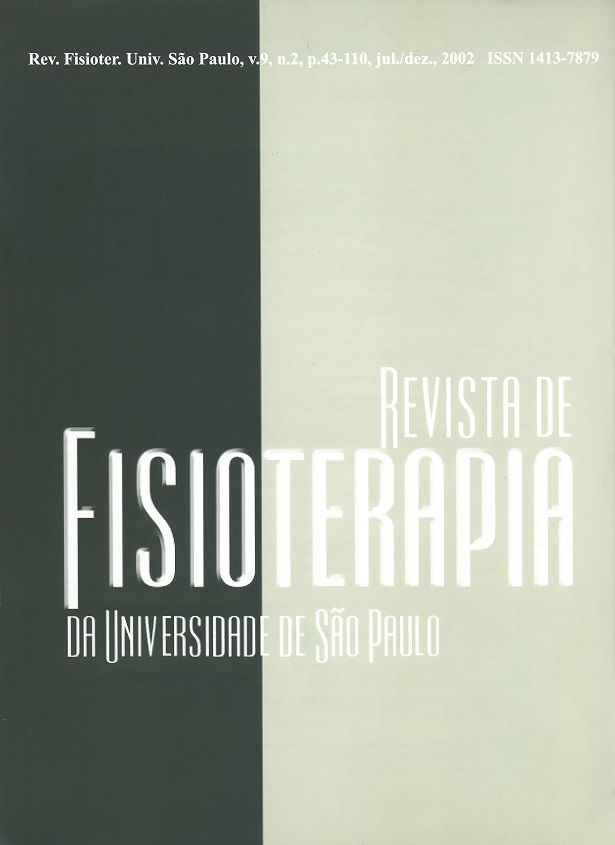Respiratory muscle strength in asthmatic patient submitted by respiratory muscle training and physical training
DOI:
https://doi.org/10.1590/fpusp.v9i2.78554Keywords:
asthma/rehabilitation, respiratory mechanics, exercise therapy/methods, respiratory therapy/methods, control groups.Abstract
The purpose of this of study is to evaluate the effects of the RespiratoryMuscular Training (RMT) and Physical Training (PT), using Maximum Inspiratory Pressure (PImax) and Maximum Expiratory Pressure (PEmax), in asthmatic patient. Thirty asthmatic patients were randomly distributed in 3 groups: patients were submitted to RMT and PT (Gl/ n - 10), patients that only realized RMT (G2/n = 10) and control group didn't receive any treatment (G3/ n = 10). All of them realized a initial evaluation which
constituted of an anamnese, physical exam and Ergometric Test. PImax and PEmax were measured as previously described for Black and Hyatt (1969). The individuals were submitted to sis weeks (three times a week) RMT and PT programs. The RMT and PT were realized during eighteen
sessions, excluding evaluation, re evaluation and retest. ANOVA (p < 0,05) was used for statistical analysis. PImax increased significantly in G1 (51,2%) and G2 (34,5%) and PEmax in Gl to (54,9%) and G2 to (39,7%) patients and they were able to keep respiratory muscle strength one month after the training. No incremental alterations were observed in G3. These findings suggest that RMT as well as RMT in association with PT can improve the efficiency of respiratory mechanics.
Downloads
Download data is not yet available.
Downloads
Published
2002-12-31
Issue
Section
Articles
How to Cite
Respiratory muscle strength in asthmatic patient submitted by respiratory muscle training and physical training. (2002). Fisioterapia E Pesquisa, 9(2), 43-48. https://doi.org/10.1590/fpusp.v9i2.78554



